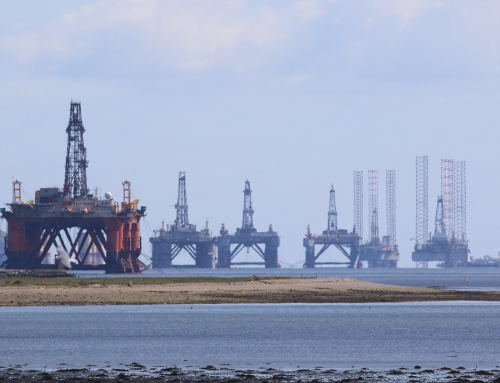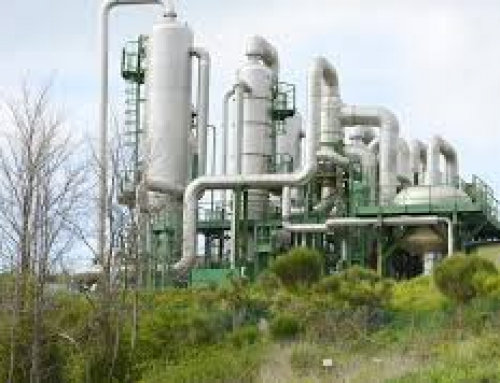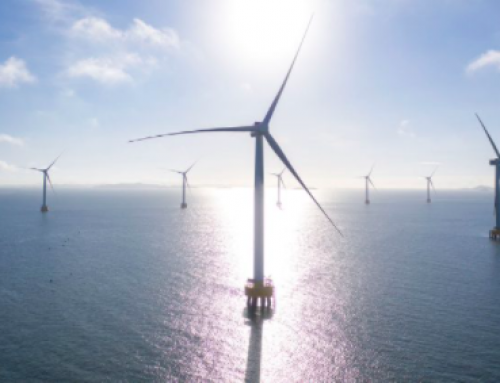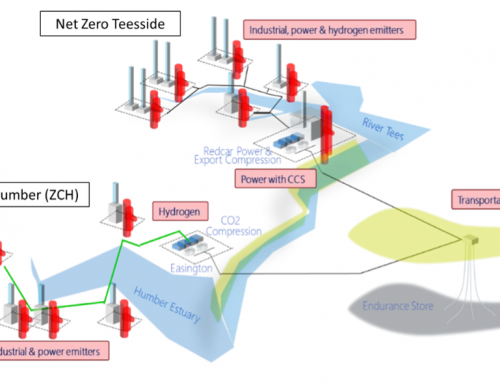By Barney Smith
Fracking is by no means a recently discovered technique: it has been used successfully in the US since 1947. It involves injecting water, sand and chemicals at very high speed to smash open shale rock underground and release the oil and gas it contains. Since 1947, over 1.7 million wells have been completed, yielding some seven billion barrels of oil and 600 trillion cubic feet of natural gas. In recent years the technique was largely responsible for the considerable increase in American production.
There is said to be plenty of shale-bearing rock under the UK, which is thus potentially “Frackable”. But the overall geographical position in the UK is simply not the same as in the US. The UK is relatively compact, without the space for American-style repeated drilling to keep up the flow of oil and gas needed to make an economic success out of fracking.
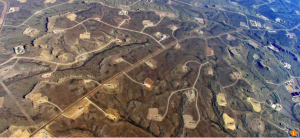
A shale gas field, courtesy www.ucsusa.com
Not that there have not been British companies with acreage on-shore in the UK with an interest in fracking. Indeed, it seemed that every time Lord Browne’s Cuadrilla issued a press release, it caused movement in the share price of IGas, another company with acreage on-shore UK. But the “Traffic light” system installed to monitor those companies which actually started fracking operations, was sufficiently sensitive to be easily tripped, with the result that the “Red” was repeatedly triggered and activities forced to come to an end.
Thus it was scarcely a surprise when in 2019 the then Government issued a formal moratorium on the use in the UK of fracking, or fracking techniques. Indeed the Conservative Manifesto for the 2019 even contained a commitment not to allow fracking unless it was safe. But it was a real surprise when in April 2021 the Johnson government, which had been relatively good at seeking ways in which the UK might fulfil its climate obligations, asked the British Geological Survey (BGS) to have another look at the fracking issue.
On the face of it, the response was likely to be much as before. On this analysis, this re-reference to BGS could be seen as just another temporizing political manoeuvre, for, almost by definition the basic ground position, or the basic position in the ground, had not changed. But perhaps what had changed was the attitude to risk on the Government side. At all events, in late September 2022, the Truss Government announced that it was lifting the very moratorium on fracking which the earlier Conservative Government had imposed. For good measure the environment minister stated that fracking was good for the environment, a claim much disputed by others.
The official position was made no clearer by Boris Johnson, who, in spite of asking the BGS to take another look, shortly before he left the Premiership, was reported to have said that if we could frack in this country both cheaply and safely, he would be in favour, but he was somewhat dubious that the technique would work in the UK; He would prefer to concentrate on areas where we were brilliant, like off-shore wind. A statement reported as much for its political value as for its purely energy worth, for it was seen as casting doubt on the competence of Liz Truss, his likely successor. Yet it contained the probable common sense view for all that.

